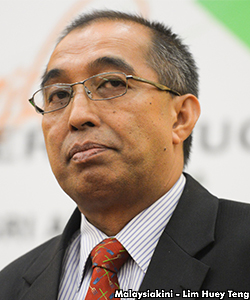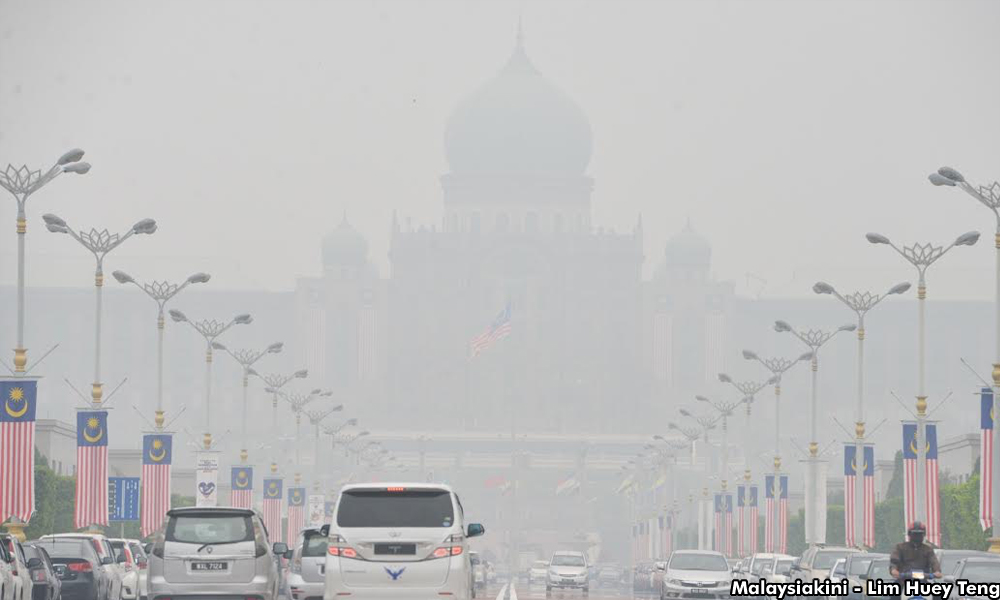The government should be improving Internet services instead of shooting itself in the foot by saying Malaysians prefer slower Internet, lamented former minister Rafidah Aziz.
“That is embarrassing if the world has the perception that most Malaysians prefer the slower option, and that the government is happy with that!” she said in a Facebook posting yesterday.
She was reacting to Communication and Multimedia Minister Salleh Said Keruak’s (photo) comments that 71 percent of Malaysian Internet users preferred the slower Streamyx broadband package that offered speeds of between 384 kilobyte per second (Kbps) to 1 megabyte per second (Mbps).
He said this was because Malaysians could not afford faster Internet plans that were more expensive.
 Rafidah, who is former international trade and industry minister, said such statements made Malaysia appear backward, and is unacceptable if the country wants to become a developed economy by 2020.
Rafidah, who is former international trade and industry minister, said such statements made Malaysia appear backward, and is unacceptable if the country wants to become a developed economy by 2020.
“Investors everywhere want the fastest broadband Internet speed possible on par with what they are used to.
“Our own people want that, too, especially people who recognise the benefits of the superfast facility. Our young who are ICT savvy practically demand it!” she said.
Rafidah said the government should make use of its Look East policy and learn from advances made by South Korea and Japan in providing fast Internet to the public.
On another matter, the woman dubbed Malaysia’s Iron Lady also lamented Malaysia’s API measuring standards which was different from Singapore’s.
“It seems our neighbour uses ‘another parameter’ to measure the intensity of the haze. We however use our own indicators for the same choking, inconveniencing and hazardous haze which come from the same source?
“Why must we be different, in the context that it is making Malaysia look so backward?” she asked.
Singapore's PSI vs Malaysia's API
Singapore's Pollutant Standards Index (PSI) incorporates measurements of dust particles both 2.5 microns and below (PM2.5) and 10 microns and below (PM10), whereas Malaysia's Air Pollutant Index (API) only accounts for PM10 particles.
During haze season however, it is PM2.5 that is the main air pollutant rather than PM10.
PM2.5 is considered to be more hazardous to human health than PM10 because it is small enough to be inhaled deep into the lungs and enter the bloodstream.
It is hence given a correspondingly higher PSI reading even at relatively low concentrations.
This led to Singaporean authorities reporting more severe air pollution than its Malaysian counterparts, even in the border state of Johor.
 This is the case despite the republic using similar standards in reporting PM10 pollution and facing similar conditions.
This is the case despite the republic using similar standards in reporting PM10 pollution and facing similar conditions.
A guideline published by the World Health Organisation (WHO) in 2006 recommends that the average concentration of particulates in the air over a 24-hour period should be no more than 25 microgram per cubic metre for PM2.5 and 50 microgram per cubic metre for PM10. An even lower target has been set for the annual average concentration.
The guideline states that the use of the PM2.5 standard is preferred, but also notes that it is unable to identify a level particulate matter in the air that does not pose a threat to human health.
"Although adverse effects on health cannot be entirely ruled out even below that level, the annual average WHO guidelines represent levels that have been shown to be achievable in large urban areas in highly developed countries, and attainment is expected to effectively reduce the health risks," WHO says.
The Natural Resources and Environment Ministry, however, maintained that Malaysia's API readings follow international standards .
Related reports
Salleh, please check your facts
For Internet speed, does Salleh prefer a cheetah or snail?
'Jamal's call for Kajang rally to divert attention from real issues'

